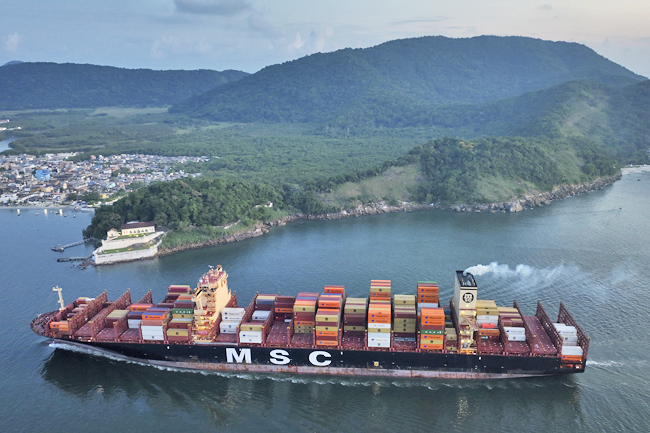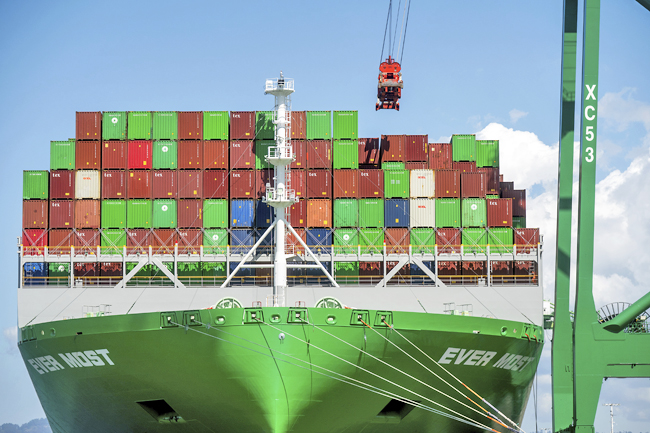AP – Nations are trying to reach an agreement to charge commercial vessels a fee for their emissions in what would effectively be the world’s first global carbon tax.
The International Maritime Organization (IMO), which regulates international shipping, set a target for the sector to reach net-zero greenhouse gas emissions by about 2050, and committed to ensuring that fuels with zero or near-zero emissions are used more widely.
Its Marine Environment Protection Committee meets Monday through Friday in London.
The committee, comprised of IMO member states, is working to approve proposed new global regulations to put a price on maritime greenhouse gas emissions and to set a marine fuel standard to phase in cleaner fuels.
The measures are more than climate aspirations – they will become mandatory for ships operating globally, said IMO Secretary-General Arsenio Dominguez, who thinks the industry must do more to cut carbon pollution. The committee will “set the course for a net-zero future for the maritime sector,” he told The Associated Press in a statement.


The future of clean shipping hangs in the balance, said senior director for climate diplomacy at a United Kingdom-based climate change nonprofit Opportunity Green Emma Fenton.
Fenton said a high price, simple flat-rate levy on shipping’s greenhouse gas emissions is the only way to decarbonise the industry equitably.
WHAT ARE THE TALKS ABOUT?
Emissions from shipping have increased over the last decade – to about three per cent of the global total according to the United Nations – as vessels have gotten much bigger, delivering more cargo per trip and using immense amounts of fuel oil.
Maritime nations agreed in 2023 to slash emissions from the shipping industry, though several experts and nations were critical of the deal since it did not set 2050 as a hard date. The IMO is now in the process of adopting regulations to achieve the goals agreed to in 2023.
A simple climate levy paired with a green fuel standard would help narrow the price gap between fossil fuels and green fuels, such as hydrogen, methanol and ammonia, according to the Global Maritime Forum, a nonprofit that works closely with the industry.
WHY ARE THEY IMPORTANT TO THE WORLD?
Shipping relies heavily on fossil fuels and the sector won’t transition off those on its own, said Jesse Fahnestock, who leads the forum’s decarbonisation work. And it will take time to build up a supply of e-fuels based on renewable electricity so investments need to happen now, he added.
Most ships today run on heavy fuel oil, releasing carbon dioxide and other pollutants as it’s burned. Dominguez has said that major decarbonising requires an overhaul of shipping fuel. The Clean Shipping Coalition is calling on governments to commit to a high price on all ship emissions and a strong fuel standard.
WHAT IS THE STATUS OF THE NEGOTIATIONS?
Led by Pacific island nations, whose very existence is threatened by climate change, more than 60 countries support a flat levy per metric tonne of emissions to reach net zero in a fair way. The shipping industry supports a fee, too. The International Chamber of Shipping represents over 80 per cent of the world’s merchant fleet. Its secretary general Guy Platten said a pricing mechanism for maritime emissions is a pragmatic solution and the most effective way to incentivise a rapid energy transition in shipping.
Some countries want a credit trading model instead of a fixed levy, where ships get credits for staying under their emissions target and ships purchase credits if they go over. Other countries want a compromise between the two models.


